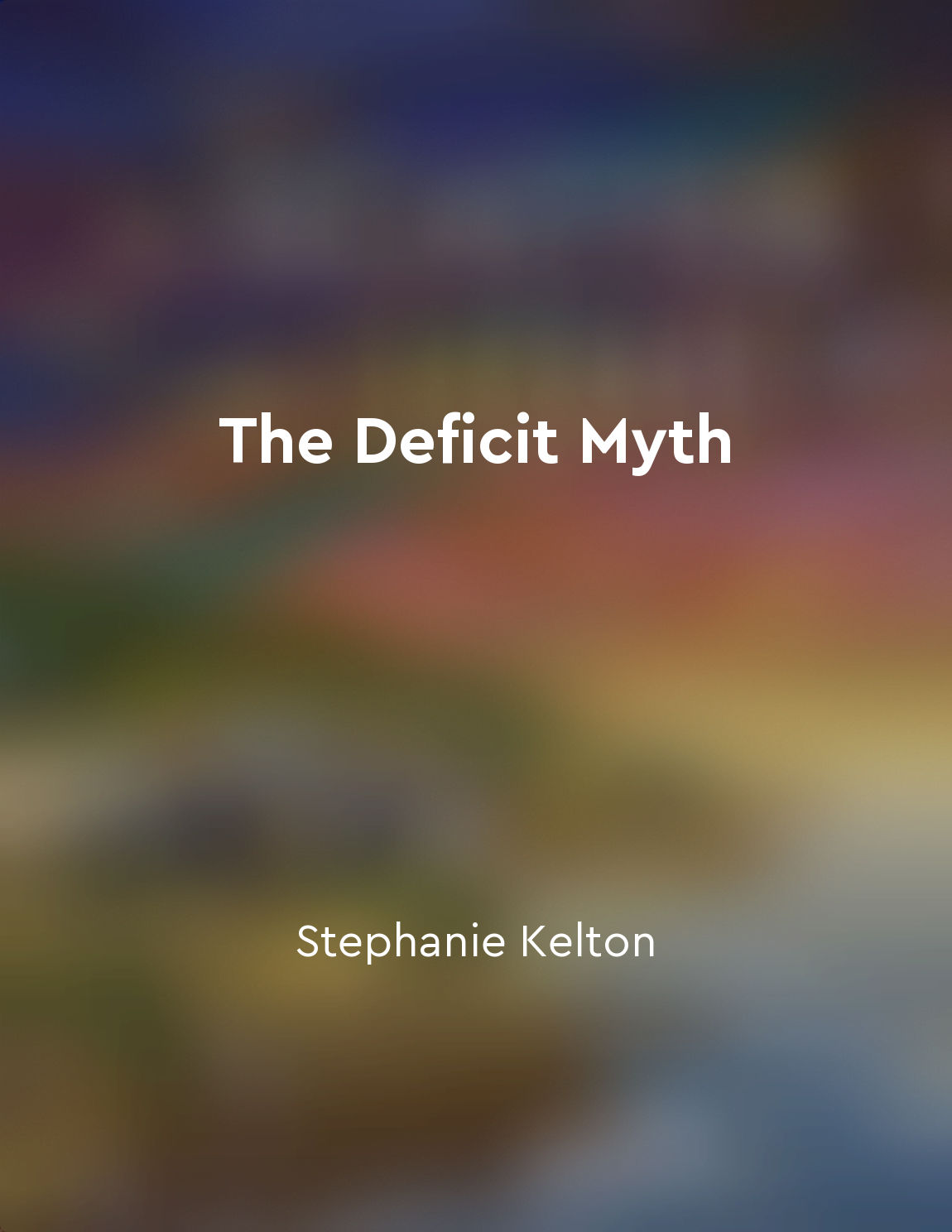Deficits are not always bad for the economy from "summary" of The Deficit Myth by Stephanie Kelton
It is commonly believed that deficits are always harmful, that they represent evidence of financial irresponsibility, a sign that the government is spending beyond its means. But this view is a misconception. Deficits can actually be a positive force for economic growth, job creation, and a more equitable distribution of income. When the government injects money into the economy through deficit spending, it can stimulate economic activity, increase demand for goods and services, and create jobs. Deficits can also help stabilize the economy during times of recession or economic downturn. By increasing government spending and running a deficit, policymakers can offset the decrease in private sector spending, preventing a further decline in economic activity. This can help to soften the impact of a recession and support a quicker recovery. In this way, deficits can be a valuable tool for managing the business cycle and promoting economic stability. Moreover, deficits are not necessarily a burden on future generations. The idea that deficits impose a financial burden on future generations assumes that the government operates like a household, constrained by a finite amount of money. However, as the issuer of its own currency, the government can always afford to pay its bills. Deficits do not need to be paid back in the same way that individuals or businesses repay loans. In fact, deficits can benefit future generations by investing in infrastructure, education, and healthcare, which can improve productivity, boost economic growth, and enhance quality of life. Another important point to consider is that deficits do not necessarily lead to inflation. While it is true that excessive deficit spending can potentially lead to inflation if it outstrips the economy's productive capacity, this is not an inevitability. Inflation is a complex phenomenon influenced by a variety of factors, including the level of demand in the economy, the availability of resources, and the behavior of market participants. By carefully managing deficits and ensuring that spending is aligned with the economy's productive capacity, policymakers can mitigate the risk of inflation and maintain price stability. In summary, deficits are not always bad for the economy. When used strategically and responsibly, deficits can be a powerful tool for promoting economic growth, stabilizing the economy, and investing in the future. By challenging conventional wisdom and reframing the way we think about deficits, we can harness their potential to build a more prosperous and equitable society for all.Similar Posts

Private charity is more effective than government welfare
The idea that private charity is more effective than government welfare is a contentious one. Proponents of government welfare ...

Comparative advantage drives specialization
The principle of comparative advantage in economics is a powerful concept that explains why individuals, businesses, and countr...
Debt relief can lead to improved credit access
When a household is burdened with excessive debt, it can have a detrimental impact on their ability to access credit. This is b...
Market participants seek to hedge against risks
Market participants are constantly exposed to various risks in the financial markets. These risks can arise from fluctuations i...
Stay committed to your financial journey, despite obstacles
It is crucial to maintain your dedication to your financial journey, even when faced with challenges that may seem insurmountab...
Public finance involves government decisions about spending and revenue
Public finance is a field that concerns itself with the economic activities of governments at various levels. This encompasses ...

The government has the power to invest in infrastructure and education
One of the key arguments put forth is that the government does not need to "find the money" in order to invest in infrastructur...
Emphasis on consumerism damages environment
The idea that our obsession with consumerism is causing irreparable harm to the environment is a pressing concern in today's so...
Consumer confidence is impacted by debt levels
Consumer confidence is a crucial driver of economic activity. When consumers feel optimistic about the future, they are more li...
The role of expectations in shaping economic outcomes is crucial
Expectations play a crucial role in shaping economic outcomes. People's expectations about the future affect their decisions in...
